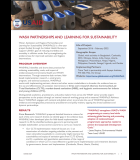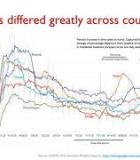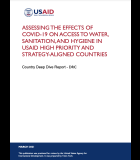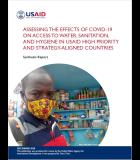Tuendelee Pamoja
The objective of the Tuendelee Pamoja program was to improve food security among vulnerable families in two ways: by improving socio-economic conditions, and by improving the health and nutrition of individuals, women, and young children. Specific activities included, among others, agricultural training, seed multiplication and distribution, rearing livestock to improve soil fertility, credit associations, tree planting, good cooking practices, and hygiene demonstrations.
Activity Description
The strategic objective of improving individual health and nutrition was based on four key initiatives:
- Improving behaviors through support groups,
- Diversifying people’s diets,
- Community-based management of the causes of malnutrition and related illnesses, and
- Improving daily hygiene by developing infrastructures, setting up committees, and changing behaviors.
Regarding concrete activities, behavior change through support groups involved trainings by project staff and fortifying communication networks among beneficiaries. Dietary diversification relied on the planting of vegetable gardens and fruit trees, and the promotion of good cooking practices. Nutrition awareness involved information sharing, community-based monitoring, and participation in group activities. Good hygiene practices required activities to disseminate information and to install and manage sanitary structures.
The program also included cross-cutting activities to:
- Improve the gender balance in local decision-making and in the distribution of labor,
- Promote community engagement in development processes,
- Support over 200 associations and groups, and
- Develop over 200 hectares of land.
Expected Outcomes
- Conduct “training of trainers” and “cascade training” models and other modes of BCC contribute to the dissemination of information, skills, and knowledge about hygiene and sanitation.
Actual Outcomes
- Child care, sanitation, nutrition, and access to clean water seems to have improved, at least in terms of awareness.





